Diversity in Events: Our Guidelines in Event Planning, Speaking and Sponsoring

Head of Communications & Content @ Buffer
At Buffer, we value diversity and inclusion. We’ve made efforts to use diversity as a lens for refining our hiring process, writing a new code of conduct, and several other spots even going so far as to make diversity everyone’s job.
Conferences, and especially tech conferences, are an area where there is often still a noticeable lack of diversity in presenters. To combat this, there are several incredible lists of female and minority speakers circling around hoping to present conference organizers with more options. (Here’s a list of over 1,000 women in tech who are speakers for starters.)
Events and conferences are often highly publicized occasions in addition to being really valuable opportunities to advance thought leadership for the people speaking. Bringing diversity and inclusion front-of-mind as we choose events and conferences to speak at, sponsor, and host is one of the most impactful ways we can live our values and hopefully make ripples throughout the industry.
This is a resource with all of the guidelines we’ve been using internally help put diversity forward as we make decisions concerning events. We hope it can be as helpful to you as it has been for us!
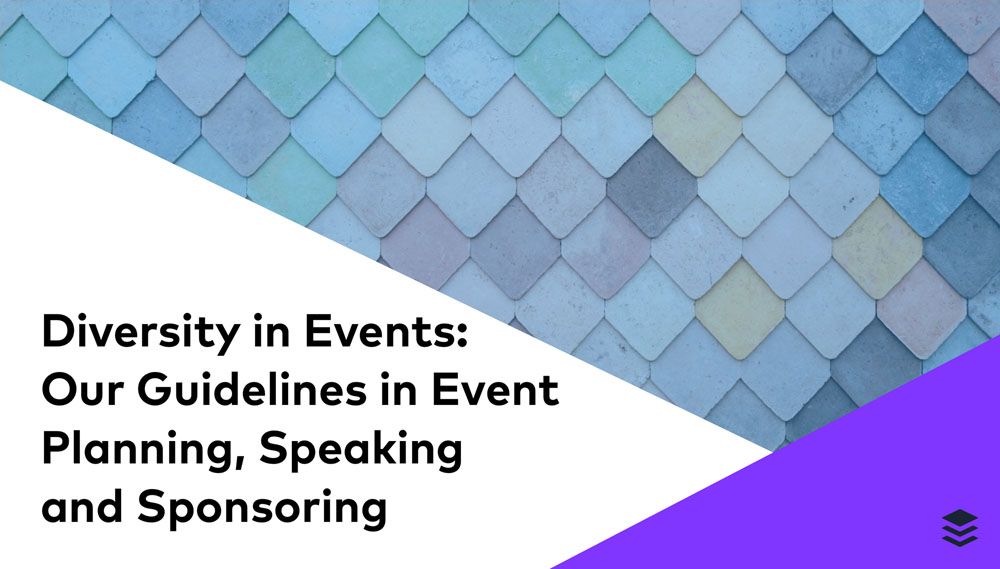
Sponsoring
We are lucky and grateful to have had many opportunities to support our community through sponsorships of events, podcasts, conferences and other fun things. Although our sponsorship budget is currently paused, these are the guidelines we’ve used in the past.
Buffer is excited to support inclusive makers and creators, transparency in work and culture, organizations focused on spreading gratitude, and opportunities to help people explore the world and find their place in it.
We focus on events that are making good-faith efforts at an inclusive roster. Some great signs here:
- At least 30% women as speakers or panelists
- Visible people of color as speakers or panelists
- The event has an official code of conduct (Here’s a great example of one!)
* We don’t put a hard number on this because “person of color” can be defined differently based on culture/part of the world; we ask each teammate to interpret and execute on this tenet on their own.
Speaking
Our Buffer teammates speak at many awesome conferences around the world. Here are a few things we ask the whole team to keep in mind when speaking:
- Ask about diversity and inclusion as a prerequisite for pitching or speaking at events.
- Consider not speaking at an event unless the event’s organizers are clearly working hard to address diversity on stage as evidenced by their answer above.
- Consider not taking part in a panel discussion of two or more people unless there is at least one woman on the panel, not including the chair/moderator.
- Consider not taking part in conferences that don’t have a credible Code of Conduct
- Consider not contributing to written roundups that aren’t making a credible effort at representing diverse voices.
- If pitching, consider diversity as an element of determining which conferences to pitch
If you’re looking for a template that might help you share this message, here’s a great example from Grace Bonney.

Another avenue we pursue is encouraging Buffer teammates to sometimes consider alternative choices on the team. Ideally, when Buffer is invited to supply a guest speaker for an event, we’d like to send women to speak just as often as we send men. That means that sometimes, some of our male teammates (especially those on our leadership team) might step aside and suggest a female colleague speak instead.
There are plenty of women at Buffer who are experts in their field, and the opportunities to speak need to be present for them.
There are a few additional ways we can go even further in our requests. This is especially for teammates who are in demand. If they are in a position to dictate terms, we encourage them to think through other conditions specific to the needs of the people they want to see at the conferences they attend.
Leveraging the power of being a person in demand to further inclusivity has been defined as being an inclusion rider. According to Nicole Sanchez, Lecturer at UC Berkeley Haas School of Business, “An inclusion rider leverages the power of a person — or a team — that is in high demand. Given the intense competition for skilled, experienced talent, an inclusion rider is a way to expand from the singular success of “rockstars” toward a scalable, group impact.”
Here’s the full list from Nicole Sanchez of suggestions for what to request when presented with speaking opportunities:
- A code of conduct for the conference
- A diverse line-up of speakers across, at a minimum, race/ethnicity, and gender
- Time in your presentation to highlight a guest; use that slot to highlight someone from an underrepresented background doing interesting work
- Equal honoraria for keynotes
- Union/labor conditions of the venue
- ADA accessibility of the venue
- Captioning and/or sign language interpretation for sessions
- Gender neutral bathrooms
- Nursing/feeding areas
- Food options that consider religious/cultural diets
To put things into perspective, here’s a look at where some popular marketing conferences stood with gender diversity last year:

Hosting
We host several events for the Buffer community and for our own Buffer teammates where we always aim to be thoughtful with our efforts in inclusivity and diversity.
For our own events, here’s what our goals are:
- Gender parity
- Events accessible to all, including those with disabilities. We will comply with ADA standards for public accommodations for every in-person event we hold in the U.S. – and ideally, exceed ADA standards in order to create a truly inclusive environment. (Here’s a guide to inclusive events from the ADA.)
- If provided, food that appeals to a range of dietary needs (mainly vegetarian, with vegan + gluten-free options) and non-alcoholic drinks available
- Pronoun stickers
- Structured opportunities for people to chat (pairs, small groups) to make it easier for introverts to participate and meet people.
For smaller events that might include a panel of speakers, our aim will be:
- No all-male panels
- No panels without racial/ethnic diversity
If we have an open discussion, our aim will be:
- Giving many diverse voices (women, people of color, different ages, people with disabilities) a chance to speak and share
Team Retreats
Another event we host is our annual Buffer retreat for our teammates. There are many elements that go into planning this, but below are a few focused on inclusivity.
Date and time: Before planning a retreat we make sure it doesn’t conflict with anyone’s ability to observe their religion.
Location: It’s important to remember that we may have teammates who could be uncomfortable (or even in danger) based on the location chosen for a retreat because of their gender or sexuality. If we consider multiple perspectives when choosing locations, we can ensure a safe and happy trip for the whole team.
Accessibility: We will comply with ADA standards for public accommodations for every in-person event we hold in the U.S. – and ideally exceed ADA standards anywhere we meet in order to create a truly inclusive environment.
Family-friendly: We often have partners and children join us on retreats and we will supply family-friendly activities so that all will feel able to participate.
Alcohol: We host primarily alcohol-free activities and always present an alcohol-free option if there will be alcohol at a dinner or reception.
Our Values
Finally, we know that these guidelines don’t cover absolutely every scenario. When in doubt, our values are always a great lens through which to view or create an event or opportunity.
We ask ourselves if this event displays the characteristics of our core Buffer values:
- Choose positivity and happiness
- Default to transparency
- Focus on self-improvement
- Be a no-ego doer
- Listen first, then listen more
- Have a bias toward clarity
- Make time to reflect
- Live smarter, not harder
- Show gratitude
- Do the right thing
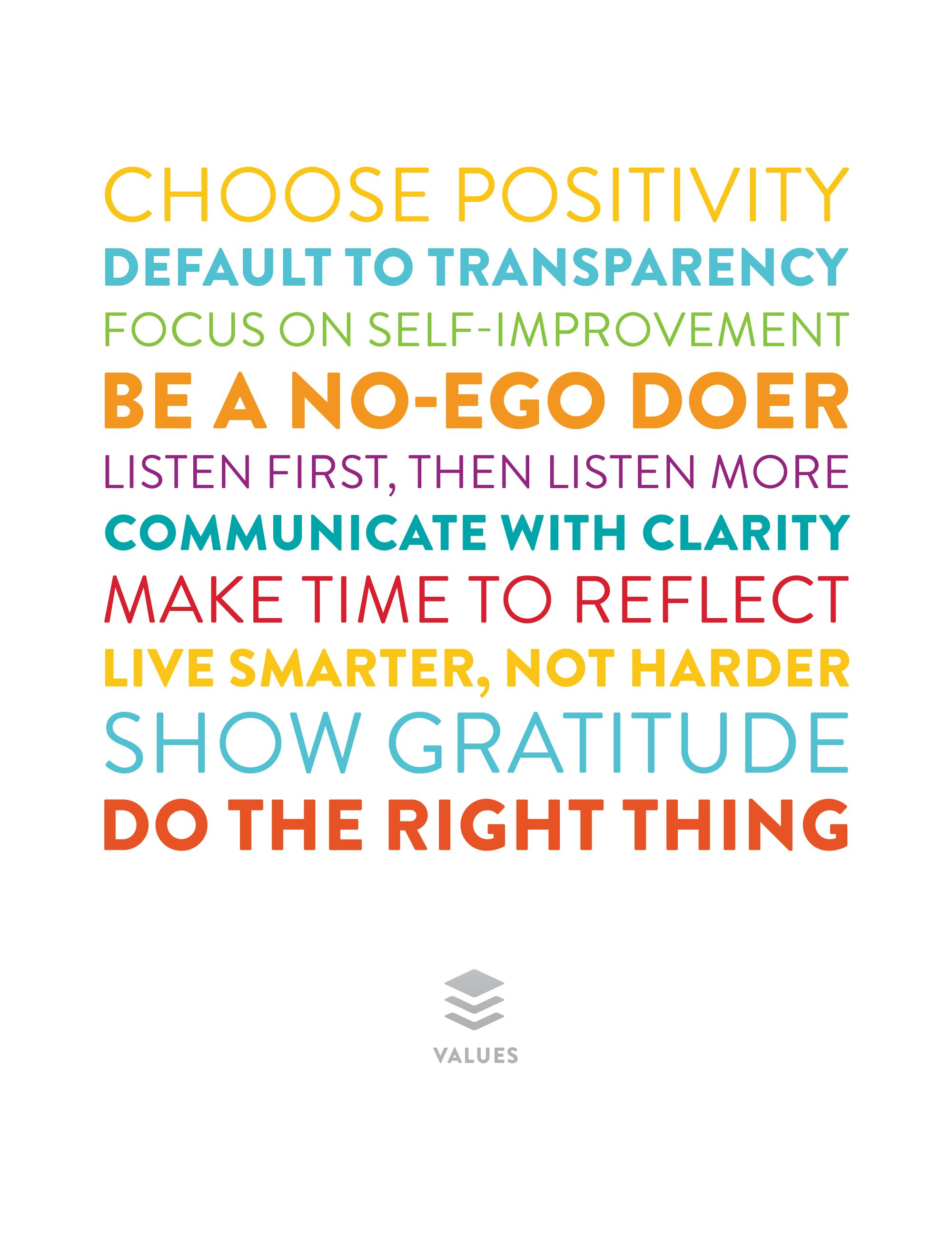
Over to You
Are there any guidelines we should add or anything we missed? We’d love to hear if these resonated with you or if you have any other great examples in the comments!
A big thank you to our Director of People Courtney Seiter for creating and maintaining these internal guidelines!
Photo by RhondaK Native Florida Folk Artist on Unsplash
Try Buffer for free
180,000+ creators, small businesses, and marketers use Buffer to grow their audiences every month.
Related Articles
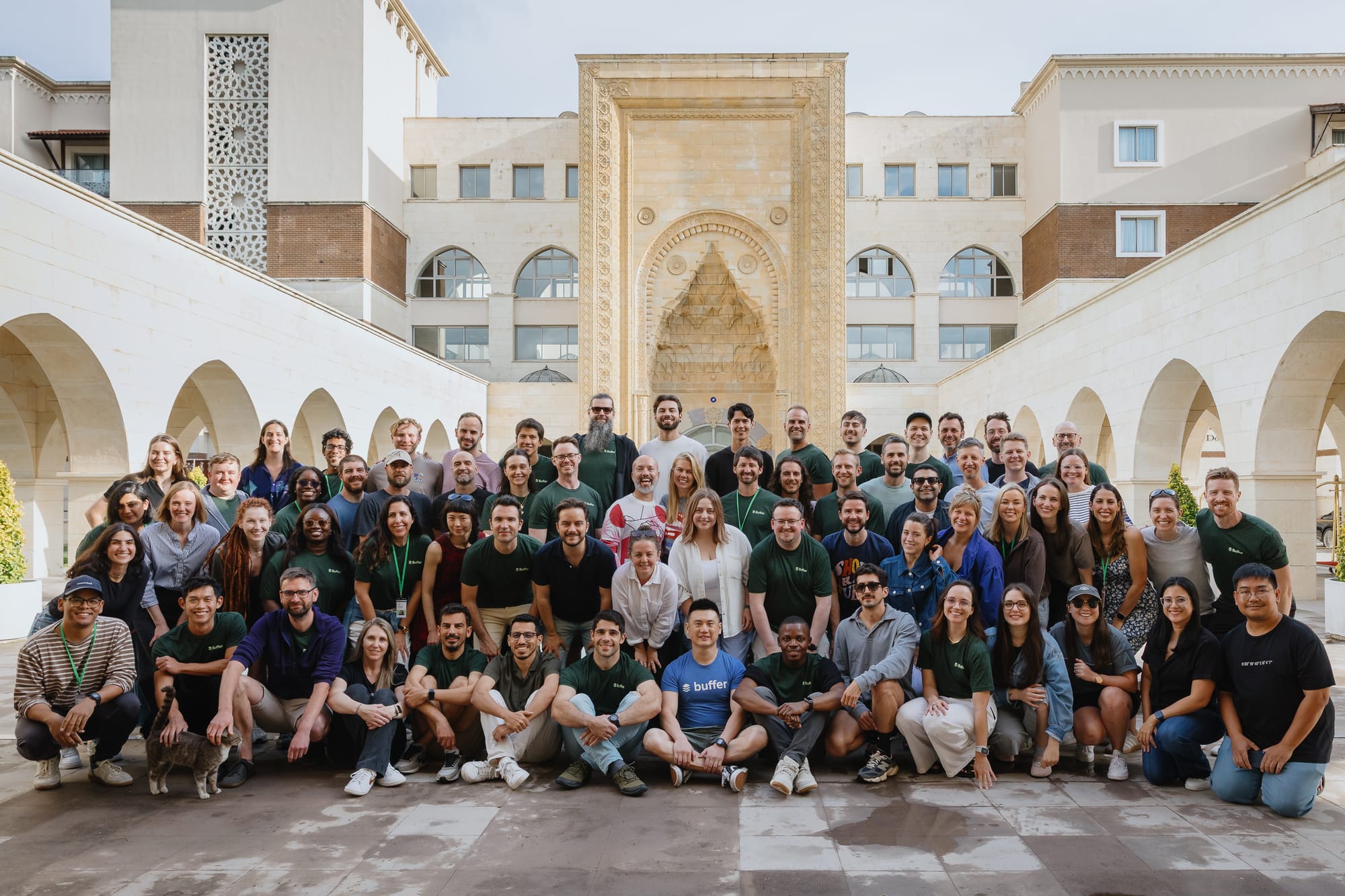
We've been hosting Retreats at Buffer for 12+ years. In this article, we've detailed everything we've learned from 14 Retreats.
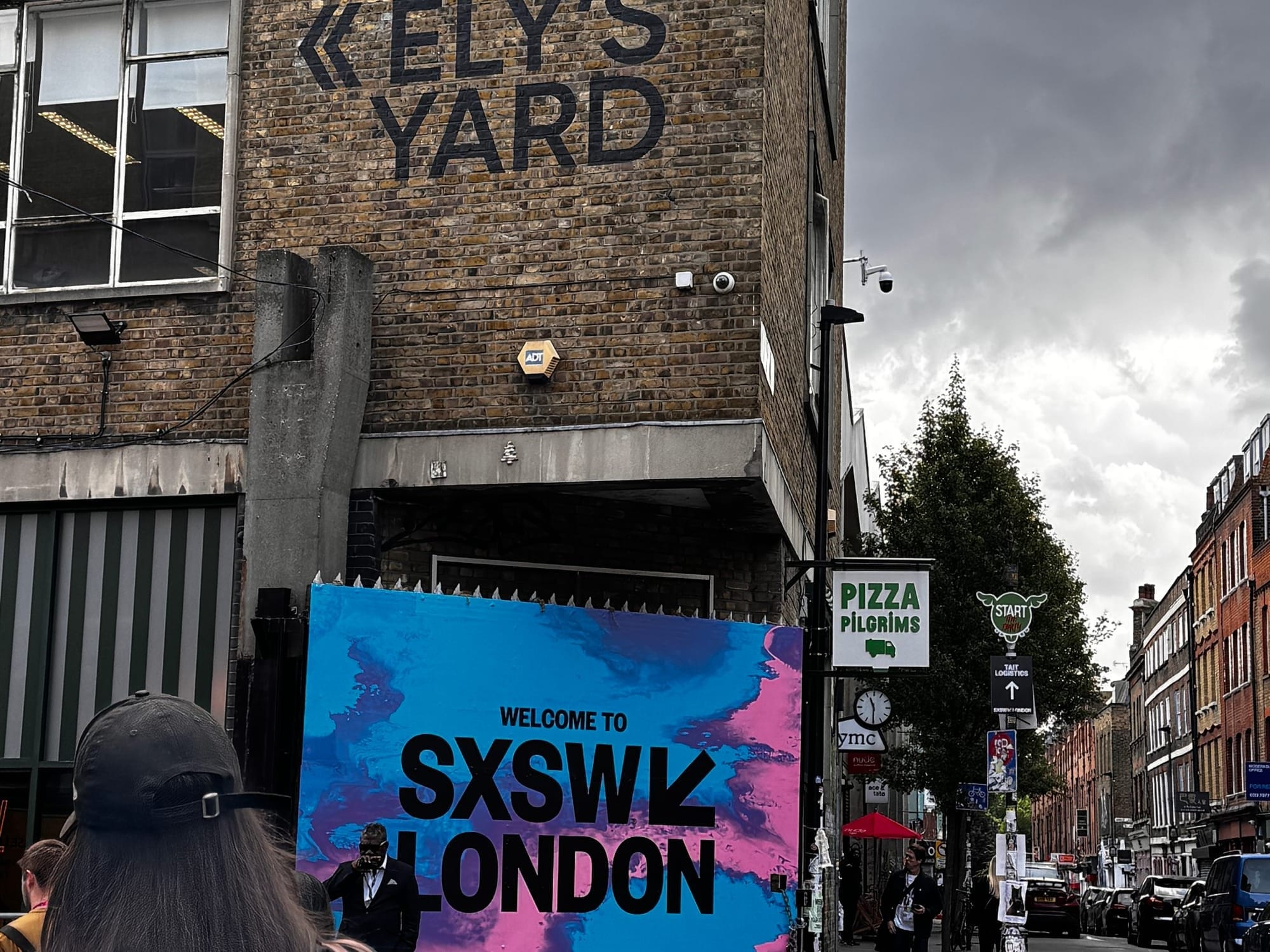
I recently attended my first in-person, international conference. Here's what I learned.
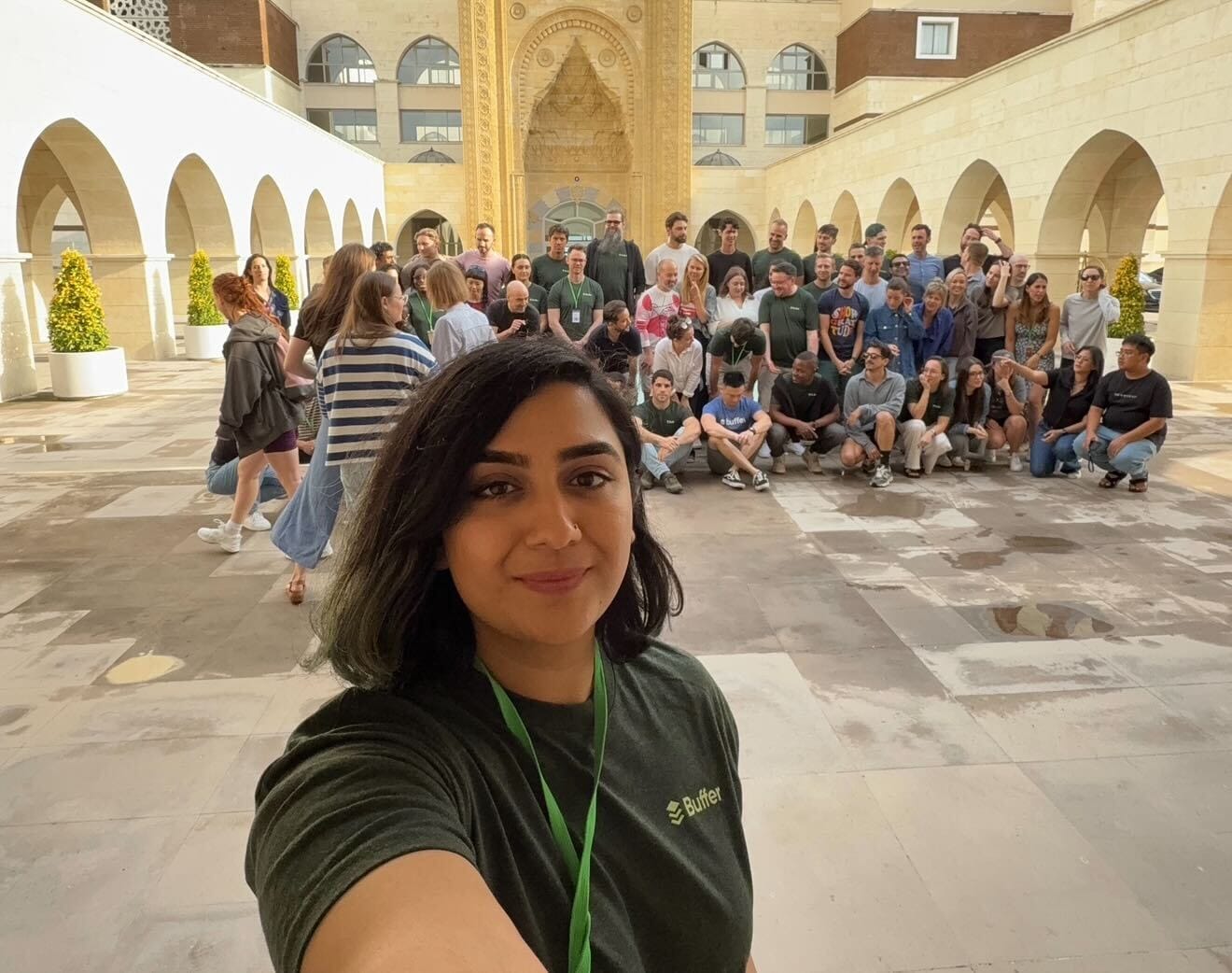
What it was like to join a fully remote team like Buffer, and how going on the company retreat so early on helped shape my journey in ways I hadn’t imagined.